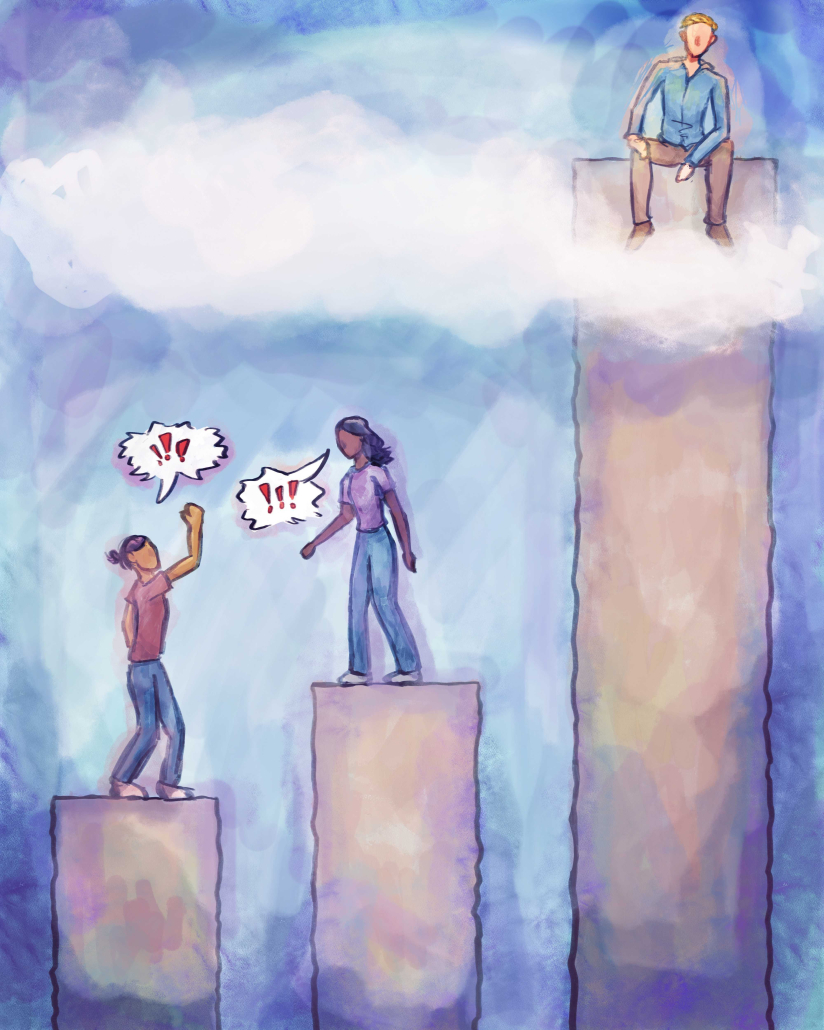It’s not selling out, it’s just surviving this economy

I remember seeing somewhere on Twitter that college students come in as moderates, become anti-establishment communists during their first three years, then come out as Wall Street “fiscally conservative but socially liberal” voters. While this tweet was comical, I questioned the validity of the snarky commentary.
Many big corporations — such as Goldman Sachs, McKinsey & Company, Microsoft and Google — that students dream of working at are the epitome of unchecked capitalism. While the company’s ethics are questionable, the benefits of working at these places are undeniably attractive and difficult to refuse.
The National Student Employment Association finds that “First-generation students are less likely to major in arts and humanities and more likely to major in business than continuing generation students.” This finding reinforces what many practitioners and scholars already know to be true: First-generation students often pursue ‘practical’ or ‘vocational’ majors to improve the likelihood of employment after graduation.
However, many low-income first-generation college students are labeled as “class traitors” or “sellouts” for working towards capitalism’s promise of rags to riches. They’re told that their activism and beliefs are just acts of virtue signaling or performative when they share their aspirations of working in Fortune 500 companies.
But why should students feel ashamed for wanting to “sellout” when the alternatives aren’t as appealing? What’s wrong with wanting to not just survive but succeed in today’s society?
The real problem isn’t poor college students wanting to be financially secure. The anti-establishment revolution isn’t going to happen from a few college students who beat the odds choosing to “be moral.” Individual action won’t change the grim realities of the college-to-corporate American pipeline. The anger towards these success stories of college students who had to fight uphill battles is misguided, privileged and frankly in poor taste.
The idea of “selling-out” and “betraying your class” is just a distraction from the true problem: capitalism’s exploitative nature will always value the exclusivity of success. First-generation college students wanting to succeed in the game of capitalism isn’t absurd, it’s realistic. Wanting to break the cycle of poverty by finding success isn’t immoral, it’s a responsibility — a necessity even.
The Clay Center for Young Healthy Minds writes, “First-generation students often experience guilt over leaving their families and possibly their financial responsibilities at home. Many first-gen students feel bad that they have an opportunity other family members did not have, as well as guilt over feeling as though they are rejecting their past and community.”
This speaks to the bigger issue of the constant scapegoat narrative that’s unfairly targeted and elitist toward an underprivileged demographic of students. Hatred towards corporations and capitalism is valid, but let’s also put into perspective how college students experiencing social mobility and working in this environment aren’t the bourgeois or employers. First-generation low-income students navigating the workforce don’t have enough power to change corporate responsibility or ethics.
In reality, choosing the “moral high ground” is a privilege. Who wants to continue the vicious cycle of capitalism? Who really wants to have an income based on unethical practices? To have the opportunity to work in these big corporations with a pretty paycheck isn’t a free choice, but a choice based on the pressure to succeed. Success for first-generation low-income students is not just for individual benefits but expands further to support their loved ones.
Not all of us have access to just falling back on our family if the career we choose isn’t financially secure. Some of us have to carry the burden of being the person to break the cycle of poverty. Our education is an investment that needs a payoff. There is no space for risk nor is there space to prioritize your own values if you can’t feed yourself and your family.
So next time someone calls you a sell-out or a Grimes-level class-traitor, tell them to not be so short-sighted. After all, someone has to fund the revolution.

